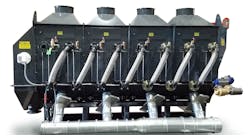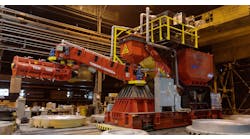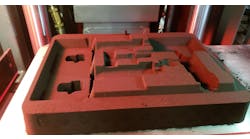Pennsylvania State University assistant professor of Mechanical Engineering, Guha Manogharan, was been awarded a $504,000 National Science Foundation Faculty Early Career Development (CAREER) grant to research 3D design principles at work in sand printing.
NSF's CAREER grants are five-year awards that support early-career faculty who have the potential to serve as academic role models in research and education by establishing a firm foundation for a lifetime of leadership in integrating education and research.
Prof. Manogharan will apply experience from traditional and advanced manufacturing to bridge "the fundamental knowledge gap between the oldest, sand casting, and the newest, additive manufacturing (AM) and 3D sand printing," according to an announcement of the research program.
"This award will enable me to start putting together the building blocks for a comprehensive, new set of design principles that can reduce the defects and improve the mechanical properties in sand-casted parts,” he said.
Manogharan plans to work with the Foundry Education Foundation to share both research and educational outcomes with foundry educators at other FEF programs, in order to integrate the new knowledge from this project into classrooms and foundries.
Recently, the same Penn State academic program committed to work with small-to-medium-sized foundries across the state to aid in their transition from using silica sands to ceramic sands, to address the occupational health and safety concerns linked to silica, and it will include efforts to incorporate 3D printing for sand molds and cores.
That project is being supported by two grants from the Pennsylvania Manufacturing Initiative. The initiative is part of a statewide push to drive new technologies and processes in the manufacturing sector. In addition to Manogharan, the effort includes Robert Voigt, professor of Industrial Engineering and graduate program coordinator for the Harold and Inge Marcus Department of Industrial and Manufacturing Engineering; and Paul Lynch, assistant professor of Industrial Engineering at Penn State Behrend.









